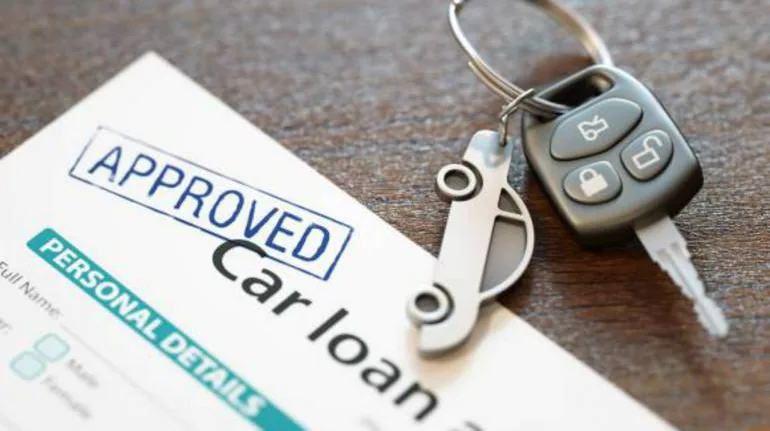Our fast-paced world has made owning a car less of a nice-to-have and more of a necessity. But some people cannot afford a car for the time being. This is where car loans come in handy. There are some smart ways to get your dream car without spending a lot of money. In this complete guide, you’ll learn everything you need to know about car loans so you can make an informed choice that will help you achieve your financial goals.
Understand Car Loans
- Interest rate: The interest rate is one of the most important things to consider when taking out a car loan. If the interest rate is lower, you pay less over the life of the loan. Compare different loans and banks to find the best interest rate that suits your budget.
- Loan terms: Car loans come in different terms, but most have terms between 36 and 72 months. A longer-term may mean lower monthly payments, but interest costs will increase over time. Look at your financial situation and choose a time that works for you.
- Down payment: Making a large down payment can have a major impact on your loan. It lowers the amount you need to borrow, meaning your interest and monthly payments will be lower. Smart starting costs at least 20% of the car price.
Make a Smart Budget
- Monthly payment: Create a fixed budget and make sure you can afford your car loan payments. Plan for insurance, repairs, and other unplanned expenses to stay in good financial shape.
- Costs you don’t know: In addition to the loan itself, there are other costs to consider, such as taxes, insurance, and licensing fees. These factors often influence the cost of a car.
Smart Shopping
- Do your homework and compare: Don’t take the first loan deal you come across. Find the best loan terms and interest rates by researching and comparing loan options from different lenders.
- Dedication: The terms of your loan can change, just like the price of the car. You shouldn’t be afraid to ask for a better interest rate or better loan terms. Lenders generally like smart and strong-willed customers.
Keep Your Money Safe
- Car insurance: Buy full coverage to protect yourself and your business if something goes wrong. Many lenders want full insurance coverage as security for the loan.
- Pay off your loan early: Read your loan agreement to see if there are any fees associated with paying off your loan early. Some loans charge fees if you pay them off early. Knowing this will save you money in the long run.
How to Get and Keep Good Credit
- Check your credit score: To get a car loan, you must first check your credit score. If you have good credit, you may be able to get a better interest rate. If your score needs improvement, do something about it. For example, pay off your bills and make sure you pay them on time.
- Get pre-approved: You may want to get pre-approved for a car loan before going to the store. Not only does pre-approval speed up the buying process, but it also lets you know exactly how much you can spend, making negotiations smoother.
Responsible for Money
- Emergency fund: Before applying for a car loan, make sure you have a reserve fund set up. You can use this fund to cover unexpected expenses so that your car bill does not become too expensive in difficult times.
- Check your balance regularly: Review your finances regularly and make changes to your budget if necessary. Things can change in your life, so being proactive can help you stay on top of your car loan.
Going Green: Consider Hybrid and Electric Options
- Environmental loans: Some lenders offer special financing options for cars that are better for the environment. If you’re considering purchasing a hybrid or electric vehicle, check out these options. You may also be able to qualify for government benefits, which will further reduce your overall costs.
- Fuel consumption: When choosing a car, consider how much gasoline it will use. Buying a car that uses less gas may not have an immediate impact on your loan, but it will save you money in the long run, which is good for your overall financial health.
Conclusion
Car loans are a smart way to make money and, if used correctly, can give you more freedom and convenience without putting your finances at risk. Understanding details like interest rates, loan terms, and your budget can help you make a choice that fits your long-term goals. Remember, buying a car isn’t just about learning to drive; It’s also about planning your money for a secure and successful future.
FAQs
1. What Factors Affect Car Loan Interest Rates?
The interest rate on a car loan depends on many factors, such as your credit score, the term of the loan, and the lender’s rules. If you have a better credit score, you will usually get a lower interest rate. On the other hand, a longer loan term may mean higher total interest costs.
2. How much deposit should I set?
Set yourself a goal to reduce car prices by at least 20%. A larger down payment lowers the amount of money you need to borrow, meaning your monthly payments and interest costs will be lower overall.
3. Are there any fees if I pay off my car loan early?
Check to see if any early payment fees are included in your loan agreement. Some loans charge fees if you pay them off early. Understanding these costs can help you make better choices about your loan.
4. Why is it important to have good credit to get a car loan?
To get a good interest rate on car loans, you must have good credit. Lenders use your credit score to decide whether to lend you money. If your score is high, you may be able to get a lower interest rate, saving you money in the long run.
5. Should I Consider Getting a Car Loan Before Applying?
Yes, it’s a good idea to get pre-approved for a car loan before going to the store. Getting pre-approved can make the buying process easier, help you set a clear budget, and give you more leverage in negotiations.
6. How do I improve my credit score if I want to get a car loan?
Paying your bills, making payments on time, and correcting any errors on your credit report can help improve your credit score. Paying attention to your credit score and taking action can improve your financial situation.

